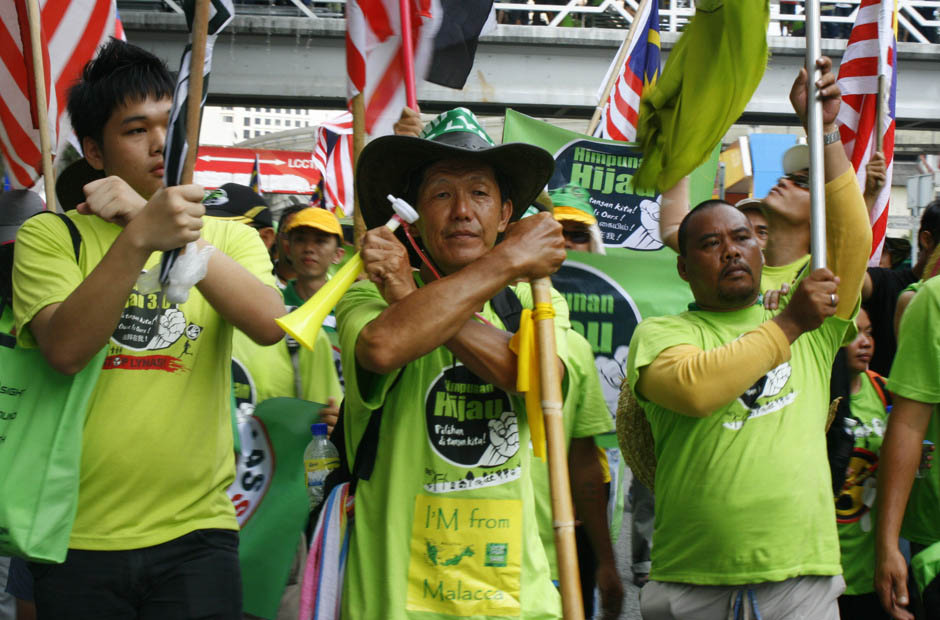| Malaysia continues to sustain modern-day slavery in domestic work |
 |
 |
 |
| Thursday, 27 May 2010 00:14 |
|
Numerous discussions have been held to discuss the new terms and conditions of a new MOU. Malaysia has so far agreed to a day off for domestic workers and a separate bank account. It has not conceded to a minimum wage structure. Malaysian government’s refusal to a basic decent minimum wage reflects that the Malaysian government wants to maintain acute exploitation of domestic workers in the country. Indonesian domestic workers who form more than 80 percent of all domestic workers earn shamefully low wages, between RM400-600 but work very long hours a day. They do not get their wages for six months or more as deductions are made to repay the exorbitant recruitment fees charged by recruitment agencies. The work conditions and tasks are undefined and thus many of them not only take of babies and household chores but also cook and even take care of the elderly. These practices tantamount to a form of modern-day slavery. Do we want to continue practicing such form of slavery? There have been far too many abuses and non-payment of wages by domestic workers. Tenaganita has handled more than 285 cases with 1995 human rights violations from domestic workers alone. The US government, in its 2009 report placed Malaysia in tier 3 and one of the key reasons was control and confinement, debt bondage and extreme form of violation (servitude) and the maltreatment and denial of access to justice for domestic workers in the country. Malaysia also practices discrimination in the recruitment and employment of domestic workers. Filipina domestic workers inMalaysia earn the highest salary at US$400 a month because of requirements imposed by the Philippines government. Malaysia offers the lowest wages in comparison to other countries employing large numbers of Indonesian domestic workers. For example, Indonesian domestic workers in Saudi Arabia are entitled to a salary of 800 riyals (about RM700) per month without any deductions. The Malaysian economy needs to continuously harness the labor of Malaysians and thus there is the demand for domestic workers to fill the vacuum left when women work outside their homes. But this need cannot be met through exploitation that is equivalent to slavery. Malaysian families need to recognize that they need to be decent employers and treat their domestic workers with justice. Malaysia must move forward to ensure basic rights are upheld in the new MOU. It has to take into consideration the recommendations put to the Human Resources Ministry by the Malaysian Bar Council and Tenaganita together with various organizations for a commitment to extend equal protection under Malaysia's labor laws to domestic workers, under Section XII of the Employment Act of 1955; provision for a standard contract that ensures minimum labor protections, including a 24-hour rest period each week, a fair and decent minimum wage, a limitation on weekly hours of work, and benefits; and stronger regulations governing recruitment agencies, including eliminating salary reductions to repay recruitment fees, and providing mechanisms to monitor and enforce these standards. If Malaysia fails to meet the basic standards of protection for domestic workers, then the government is mapping the path to forced labor and slavery-like conditions which are factors that constitute a crime as defined in our Anti-Trafficking in Persons Act 2007. Malaysia is now represented in the UN Human Rights Council for a second term. It can no longer be complicit about the protection of rights of women and of domestic workers. The path to economic competitiveness and real growth is not through the enslavement of workers and exploitation but through equal treatment and rights protection. Dr Irene Fernandez Executive Director. TENAGANITA |

 The Malaysian government, in spite of loud statements that it will combat trafficking in persons, continues to sustain modern-day forms of slavery in domestic work. It has refused to recognize domestic work as work and a decent minimum wage for all domestic workers when Prime Minister Najib Razak and President Susilo Bambang Yudhoyono met in Kuala Lunmpur recently. As a result, the Memorandum of Understanding between Malaysia and Indonesia is hanging with no conclusion.
The Malaysian government, in spite of loud statements that it will combat trafficking in persons, continues to sustain modern-day forms of slavery in domestic work. It has refused to recognize domestic work as work and a decent minimum wage for all domestic workers when Prime Minister Najib Razak and President Susilo Bambang Yudhoyono met in Kuala Lunmpur recently. As a result, the Memorandum of Understanding between Malaysia and Indonesia is hanging with no conclusion.





